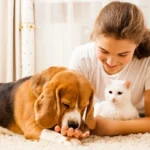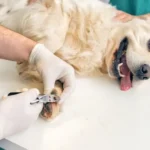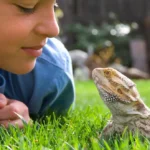Horses are outstanding creatures that offer valued companionship and assistance to humans in many aspects of existence. but with such large and complex bodies, how lengthy are we able to anticipate our dependable equine friends to live? allows discover the common horse lifespan in detail, as well as various factors known to impact toughness.
Horse lives can vary, but on average domestic horses live for 25 to 30 years, with some individuals surpassing 35 years of age. Proper nutrition, veterinary care, exercise and living conditions all play a role in supporting long and healthy horse lives.
Calculating the Average Age and Horse Lives for Domestic Horses:
To determine a mean lifespan, veterinarians and equine experts consider data from large populations of domestic horses residing in controlled environments with access to professional veterinary care. On average, domestic horses live between 25-30 years when provided with excellent nutrition, healthcare, housing conditions, and stress management.
However, averages do not tell the whole story and much variation exists depending on a horse’s individual breed, size, genetics, living situation, and overall quality of care received over its lifetime. For example, studies show miniature and light horse breeds such as ponies often surpass the average horse lives, reaching 35-40 years of age before passing away.
Ensuring horses receive high quality forage, regular deworming and dental care, proper hoof maintenance, vaccination protocols, and comfortable, safe living conditions can help maximize their potential horse lives.
At the other end of the spectrum, draft and work horse breeds structured for plowing, logging, riding, or driving tend to have a shorter average lifespan closer to 20-25 years. Their larger frames place increased stress on joints, limbs, and internal organs over time compared to lighter breeds. Genetics also influence longevity for certain bloodlines prone to specific late life health challenges.
Understanding Factors Affecting Lifespan in Domestic Horses:
A horse’s living conditions, medical history, and lifestyle all factor into actual lifespan achieved. Here are some key variables known to impact how long horses live:
Veterinary Care: Routine veterinary exams, vaccinations, dental floats, deworming, and specialized treatments for any illnesses or injuries heavily influence a horse’s longevity. Proper preventative healthcare is essential.
Nutrition: A balanced diet customized for a horse’s breed, age, work activity level, and any pre existing conditions such as laminitis supplies the nutrients needed to maintain health and resist disease. Over or under feeding can be detrimental.
Housing: Horses housed in clean barns or pastures with shelter access consistently live longer than those confined to small, unclean stalls or those forced to reside on barren or crowded pastures lacking forage and natural behaviors. Ideal enclosures allow some turnout daily.
Stress Levels: Horses under constant high stress from factors like unstable housing situations, conflict heavy social groups, harsh training techniques, or excessive work demands are more susceptible to illnesses that may shorten their lifespan. Chronic stress takes a cumulative toll.
Size & Breed: Larger draft breeds prone to joint issues typically live shorter lives. Genetics also influence some breeds’ risks such as Arabs’ tendency toward laminitis. Overall health maintenance aims to minimize breed specific challenges.
Exercise Level: Moderate regular exercise challenges horses’ bodies benefitting musculoskeletal and cardiorespiratory health when matched to their fitness, age, and work needs. Overuse injuries from intense or imbalanced activity can be detrimental.
Reproduction: Broodmares may face higher health risks and more rapid aging from repetitive pregnancies and lactation over their lifetime. Studs can usually remain active longer with proper nutrition addressing any increased caloric needs.
Through diligent, tailored healthcare considering these critical factors, many domesticated horses managed as beloved companions not only meet but exceed typical longevity averages. At the same time, some variables prove unavoidable and it’s unrealistic to defy all genetic or environmental constraints impacting every equine.
Causes of Mortality in Horses and How Lifespans Vary:
Despite conscientious care by dedicated horse owners and veterinarians, unfortunate incidents and inherent health vulnerabilities unfortunately cut some equine lives short before old age. Lameness, colic episodes, and accidents represent leading causes of death for domestic horses. Let’s explore each in more detail:
Colic: Any form of intestinal disorder ranking as a top killer, with some statistics even suggesting 1 in 5 horse deaths involve colic. Bloat, twisting or obstruction of the digestive tract demand emergency evaluation and treatment to resolve.
Lameness: Issues like arthritis, navicular disease, injury induced founder, or other conditions limiting mobility can prove career or even life ending in cases of intractable pain. Euthanasia is a difficult last resort.
Accidents: Incidents involving injury from equipment failures; fencing or trailer entanglements; or kicks, bites or falls usually during turnout, breeding behaviors, or veterinary procedures sometimes lead to fatal bleeding or trauma despite medical intervention.
Organ Failure: Many elder horses over 30 eventually pass away due to systemic organ failure as physiological systems gradually decline with advanced age much like in dogs and humans. Kidney or liver dysfunction, heart conditions, and other degenerative processes can become terminal.
Neoplasia: Rarely, cancers may develop and progress despite surgical removal of localized tumors in rare curable cases. Widespread metastasis more typically leads to euthanasia recommendations from veterinarians.
Infectious Diseases: While less common in closed domestic herd environments and with preventative veterinary practices, contagious conditions such as equine influenza, equine herpesvirus, or equine encephalitis virus outbreaks can endanger susceptible horses amidst community transmission.
Wild equine populations lacking professional medical care and faced with environmental stresses naturally experience more mortality from traumas, starvation periods, predation, or transmission of endemic infectious diseases. On average their lifespans range 15-25 years depending on ecological conditions and threats within a given habitat.
Beyond mortality factors, informed owners can also intervene to medically address the most predictable threats to the average horse’s longevity through diligent preventative healthcare tailored for each individual animal.
By understanding mortality causes and average lifespan statistics, caretakers can strive to optimize every horse’s quality of life and extended years of enjoyment within reasonable constraints.
Proactively Maximizing the Elder Equine’s Golden Years:
For horses fortunate enough to reach their third decade, dedicated owners can still play an active role supporting health maintenance and comfort. Senior horse welfare aims not only at survival but quality of life too even for animals in their 30s and beyond defying averages. Special considerations come into focus:
- Modified Diets: Nutritionally complete senior feeds address age related digestion changes and dental deterioration impacts on chewing abilities to prevent weight loss.
- Specialized Dentistry: Annual floating beyond routine care extracts disabled teeth no longer effectively masticated food and checks for tumors. Dental issues affect appetite and quality of life.
- Gentle Exercise: Low impact movement like paddock turnout, hand walking, or supervised groundwork prevents musculoskeletal atrophy while respecting any joint arthritis present.
- Pain Management: For chronic lameness, targeted therapies include injections, anti-inflammatory medications under veterinary guidance, acupuncture, or alternative modalities.
- Safe Housing: Low step barn aisles, ramps instead of stairs, non slip footing and larger paddocks minimize injury risks from slips or falls. Shelters accommodate infirmity.
- Close Monitoring: Owners carefully observe any changes in appetite, behavior or activity levels reporting concerns promptly for veterinary evaluation and customized care of new geriatric issues as they develop.
With committed elder horse stewardship, many loyal companions can continue living comfortably into their 30s, 40s or beyond, regularly surpassing even averages for domestic equine lifespan under dedicated owners’ watchful, proactive support of senior health needs. Commitment to our aging equine friends’ golden years pays enormous dividends in lifetimes of memories and relationships.
FAQs:
Q: How long do show horses live?
A: 30 years.
Q: Which breed of horse lives the longest?
A: Arabian horses
Q: How do horse ages work?
A: A horse ages roughly 3 times faster than a human
Q: What is a good age for a horse?
A: 8- to 15-year old
Q: Do horses get faster as they age?
A: The rate of improvement from age 2 to 4 1/2 is greater than the rate of decline after age 4 1/2
Conclusion:
Through comprehensive veterinary healthcare; optimizing diet, housing conditions and stress levels; selectively breeding for favorable genetics; and proactively addressing individual health challenges and senior concerns horse caretakers maximize chances that our equine companions achieve full, vibrant horse lives. By understanding averages, impacts and veterinary advancements benefiting longevity,
Owners empower well informed stewardship sustaining horses’ overall welfare and quality of life. With diligent preventative health protocols and timely treatment of issues as they arise, horse lives can often surpass even the most optimistic averages. Overall, promoting welfare from birth through geriatric stages helps domesticated horses thrive well into their third decade and beyond.










